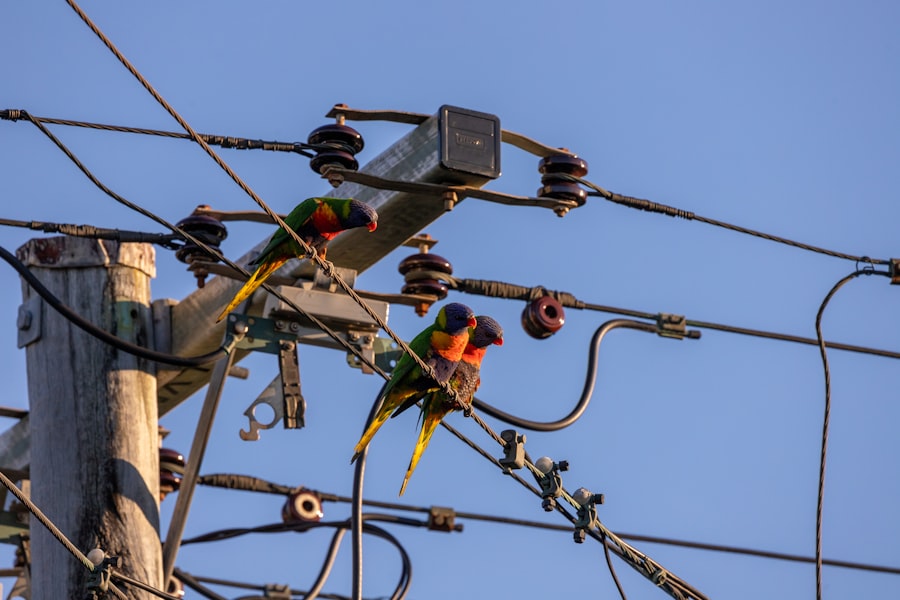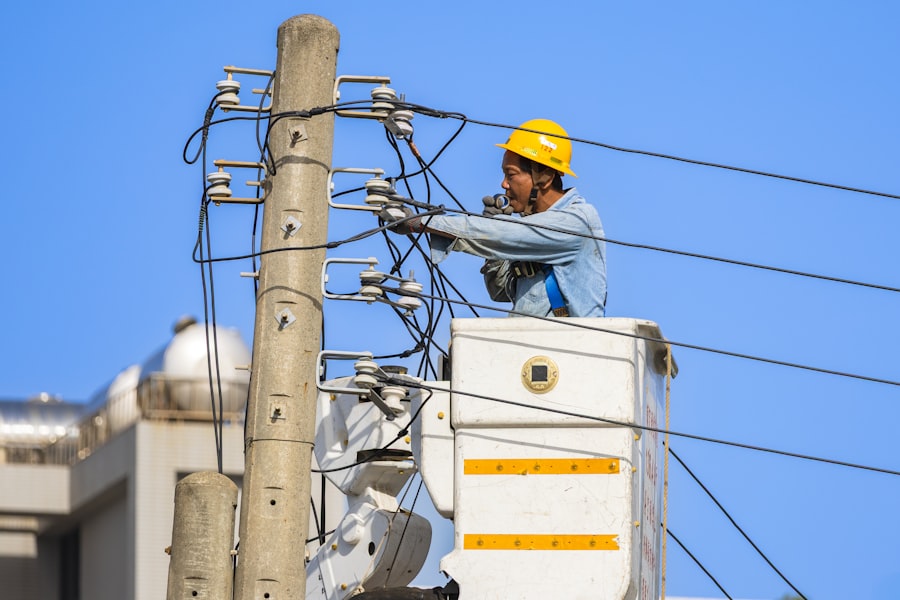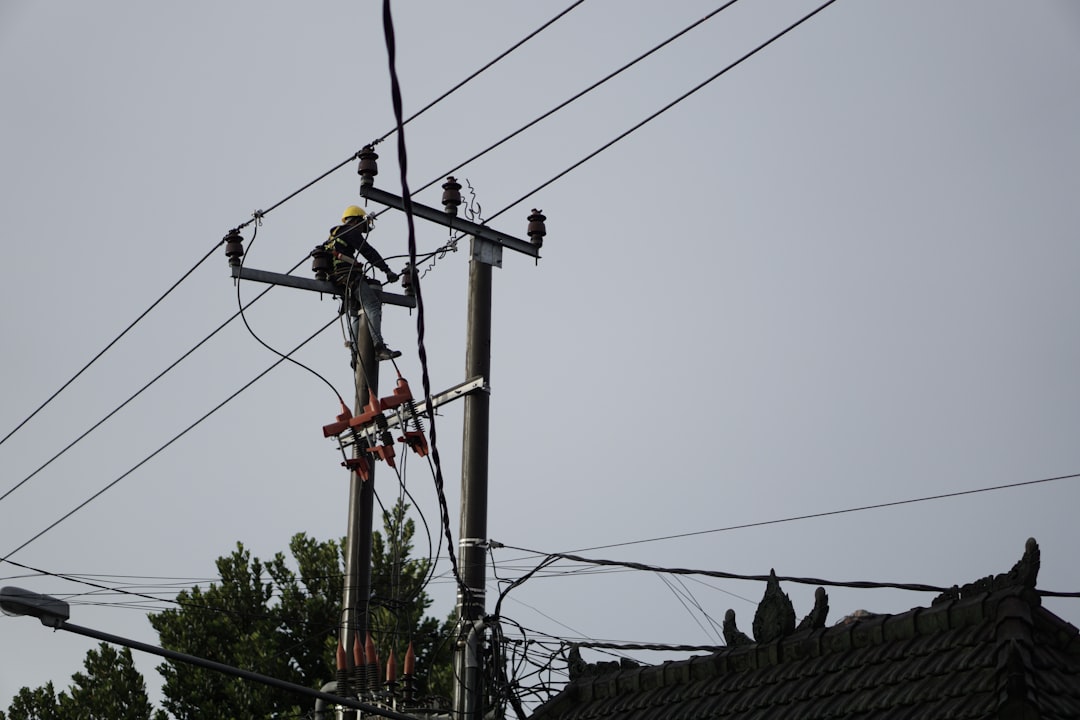As you navigate the evolving landscape of the workforce, the intersection of artificial intelligence (AI) and traditional trades like electrical work becomes increasingly significant. The rapid advancement of technology has transformed various industries, and the electrical sector is no exception. Electricians, who have long been the backbone of electrical systems in homes, businesses, and infrastructure, now find themselves at a crossroads where their skills may be complemented or challenged by AI.
Understanding this dynamic is crucial for anyone in the field or considering a career in electrical work. AI is not merely a buzzword; it represents a paradigm shift in how tasks are performed across various sectors. From smart home devices to automated energy management systems, AI is reshaping the way electrical systems are designed, installed, and maintained.
As you delve deeper into this topic, it becomes clear that the role of electricians is evolving, requiring a blend of traditional skills and new technological competencies. This article will explore the current role of electricians, advancements in AI technology, and the potential impacts on the profession.
Key Takeaways
- AI technology is rapidly advancing and has the potential to impact various industries, including the field of electrical work.
- Electricians currently play a crucial role in the workforce, performing a wide range of tasks related to electrical systems and equipment.
- Advancements in AI technology, such as machine learning and robotics, are changing the way electrical tasks are performed and have the potential to automate routine tasks.
- The potential impact of AI on electrician jobs includes increased efficiency, improved safety, and the need for electricians to adapt to new technologies.
- Safety concerns with AI in electrical work include the need for proper training, maintenance of AI systems, and the potential for errors or malfunctions.
Current Role of Electricians in the Workforce
In today’s workforce, electricians play a vital role in ensuring that electrical systems function safely and efficiently. You may already know that their responsibilities extend beyond mere installation; they are also involved in troubleshooting, maintenance, and compliance with safety regulations. Electricians are essential for both residential and commercial projects, ensuring that electrical systems meet the demands of modern technology while adhering to strict safety standards.
As you consider the current landscape, it’s important to recognize that electricians often work in diverse environments. From new construction sites to existing buildings requiring upgrades, their expertise is invaluable. They must possess a deep understanding of electrical codes, safety protocols, and the latest technologies.
This multifaceted role requires not only technical skills but also problem-solving abilities and effective communication with clients and other professionals in the construction industry.
Advancements in AI Technology

The advancements in AI technology are reshaping industries at an unprecedented pace. In the realm of electrical work, AI applications are becoming more sophisticated, offering tools that can enhance efficiency and accuracy. For instance, machine learning algorithms can analyze vast amounts of data to predict equipment failures before they occur, allowing electricians to perform preventative maintenance rather than reactive repairs.
This shift not only saves time but also reduces costs for both electricians and their clients. Moreover, AI-driven design software is revolutionizing how electrical systems are planned and implemented. As you explore these advancements, you’ll find that tools powered by AI can optimize layouts for wiring and circuitry, ensuring that installations are both efficient and compliant with regulations.
These technologies enable electricians to visualize complex systems in ways that were previously unimaginable, enhancing their ability to deliver high-quality work.
Potential Impact of AI on Electrician Jobs
| Metrics | Statistics |
|---|---|
| Number of electrician jobs at risk | 25% |
| Projected increase in demand for AI-related skills | 40% |
| Percentage of electricians using AI tools | 15% |
| Expected impact on job tasks | Automation of repetitive tasks |
As you contemplate the potential impact of AI on electrician jobs, it’s essential to consider both the opportunities and challenges that lie ahead. On one hand, AI can augment the capabilities of electricians, allowing them to focus on more complex tasks while automating routine processes. This could lead to increased job satisfaction as electricians spend less time on mundane tasks and more time on innovative projects that require their expertise.
On the other hand, there is a legitimate concern about job displacement as AI continues to evolve. While many routine tasks may be automated, it is crucial to recognize that the human touch remains irreplaceable in areas such as customer service and complex problem-solving. As you reflect on this duality, it becomes clear that electricians who embrace AI technology and adapt their skills will likely find themselves in a stronger position within the workforce.
Automation of Routine Electrical Tasks
The automation of routine electrical tasks is one of the most tangible ways AI is influencing the profession. You may have noticed that many basic tasks—such as circuit testing or data logging—can now be performed by AI-powered tools with remarkable accuracy. This shift allows electricians to allocate their time more effectively, focusing on intricate installations or troubleshooting complex issues rather than repetitive tasks.
However, while automation can enhance efficiency, it also raises questions about skill redundancy. As you consider this aspect, it’s important to recognize that electricians will need to adapt by acquiring new skills that complement these automated processes. Embracing technology will not only make you more competitive in the job market but also empower you to leverage AI tools to improve your work quality.
Safety Concerns with AI in Electrical Work

Safety is paramount in electrical work, and the integration of AI brings both benefits and concerns in this regard. On one hand, AI can enhance safety by providing real-time monitoring of electrical systems and alerting electricians to potential hazards before they escalate into dangerous situations. For instance, predictive analytics can identify patterns that indicate equipment failure or overloads, allowing for timely interventions.
Conversely, reliance on AI systems raises questions about accountability and decision-making in high-stakes situations. As you ponder these safety concerns, it’s essential to consider how human oversight remains critical in ensuring that AI systems function correctly and ethically. Electricians must be trained not only to use these technologies but also to understand their limitations and maintain a vigilant approach to safety.
Training and Education for Future Electricians
As the landscape of electrical work evolves with AI integration, so too must the training and education of future electricians. You may find that traditional apprenticeship programs are beginning to incorporate elements of technology training, emphasizing the importance of understanding AI tools alongside conventional electrical skills. This shift ensures that new electricians are well-equipped to navigate a workforce increasingly influenced by technology.
Moreover, ongoing education will become essential for current electricians looking to stay relevant in their field. As you consider your own career trajectory or that of others in the profession, it’s clear that embracing lifelong learning will be key. Workshops, online courses, and certifications focused on AI applications in electrical work will provide valuable opportunities for skill enhancement and professional growth.
Collaboration between AI and Electricians
The future of electrical work lies not in competition between humans and machines but rather in collaboration. As you explore this concept further, you’ll see that AI can serve as a powerful ally for electricians rather than a replacement. By leveraging AI tools for data analysis or design optimization, electricians can enhance their decision-making processes and improve project outcomes.
As you envision this partnership between humans and machines, it becomes evident that embracing technology will lead to innovative solutions that benefit both electricians and their clients.
Job Opportunities in AI for Electricians
As AI continues to permeate various sectors, new job opportunities are emerging specifically tailored for electricians with tech-savvy skills. You may find roles such as smart home system installers or energy management consultants becoming increasingly prevalent. These positions require a blend of traditional electrical knowledge and an understanding of how AI technologies can optimize energy usage or enhance home automation.
Additionally, electricians who specialize in integrating renewable energy sources with smart technologies will be well-positioned for future job markets. As society shifts toward sustainable energy solutions, your expertise will be invaluable in designing systems that harness solar power or other renewable resources while incorporating AI for efficiency monitoring.
Ethical and Legal Considerations of AI in Electrical Work
The integration of AI into electrical work also brings forth ethical and legal considerations that must be addressed as you navigate this evolving landscape. Issues such as data privacy, liability for automated decisions, and compliance with regulations become increasingly complex as technology advances.
Moreover, ethical considerations surrounding job displacement must be taken into account as well. As you reflect on these challenges, it’s essential to advocate for policies that support workers transitioning into new roles created by technological advancements while ensuring that ethical standards guide the development and deployment of AI systems within the electrical industry.
The Future of Electrician Jobs in the Age of AI
In conclusion, the future of electrician jobs in the age of AI presents both challenges and opportunities that require careful consideration. As you look ahead, it’s clear that embracing technology will be essential for success in this evolving landscape. Electricians who adapt their skills to incorporate AI tools will not only enhance their job prospects but also contribute to a safer and more efficient electrical industry.
Ultimately, the collaboration between human expertise and artificial intelligence holds great promise for transforming how electrical work is performed. By remaining proactive in your education and training while advocating for ethical practices within the industry, you can play a pivotal role in shaping a future where electricians thrive alongside advancing technologies. The journey ahead may be uncertain, but with adaptability and foresight, you can navigate this new era with confidence.
The question of whether AI will take over electrician jobs is a topic of growing interest and debate. While AI and automation are advancing rapidly, the role of an electrician involves complex problem-solving, manual dexterity, and on-the-spot decision-making that are challenging for AI to replicate. For a deeper understanding of how technological advancements are impacting various professions, you might find this related article insightful. It explores the broader implications of AI on the workforce and how different sectors are adapting to these changes.
FAQs
What is AI?
AI, or artificial intelligence, refers to the simulation of human intelligence processes by machines, especially computer systems. These processes include learning, reasoning, and self-correction.
What are electrician jobs?
Electrician jobs involve installing, maintaining, and repairing electrical systems in homes, businesses, and other settings. Electricians work with a variety of electrical components, such as wiring, circuit breakers, and lighting fixtures.
Will AI take electrician jobs?
While AI and automation may impact certain aspects of the electrical industry, such as the use of robotics for certain tasks, it is unlikely that AI will completely replace electrician jobs. Electricians perform complex and varied tasks that require human judgment, problem-solving skills, and physical dexterity, which are difficult for AI to replicate.
How is AI impacting the electrical industry?
AI is impacting the electrical industry by improving efficiency and safety through the use of smart technologies, such as automated systems for monitoring and controlling electrical systems. AI is also being used to analyze data and predict maintenance needs for electrical equipment.
What skills are important for electricians to remain competitive in the age of AI?
To remain competitive in the age of AI, electricians should focus on developing skills that are difficult for AI to replicate, such as critical thinking, problem-solving, and customer service. Additionally, staying updated on the latest technologies and regulations in the electrical industry will be important for electricians.
